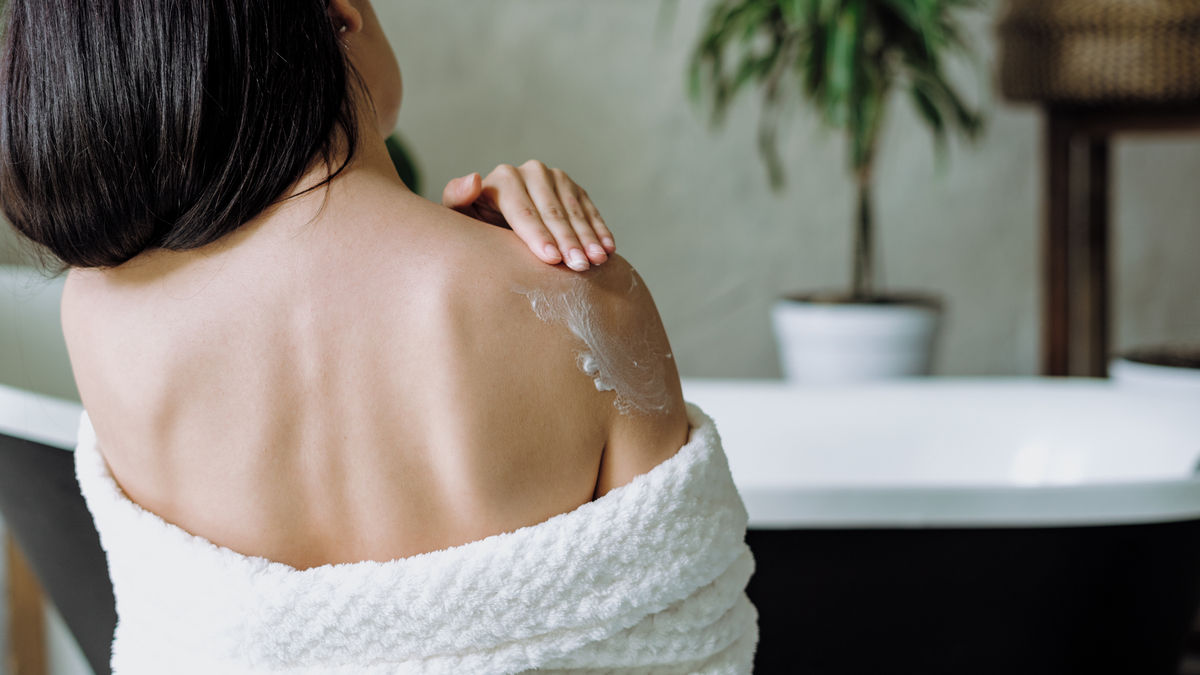Butt Acne from Wet Clothing: Beauticians' Insight
Butt acne is a common issue faced by many, often linked to prolonged exposure to wet clothing. As beauticians, understanding the nuances of this condition can help us provide effective solutions to our clients. Moisture from wet clothing trapped against the skin creates a breeding ground for bacteria, often leading to clogged pores and inflammatory responses, such as buttocks acne.
:max_bytes(150000):strip_icc()/back-view-of-senior-woman-applying-cream-on-neck-1125579154-af53c8f013b749e79e49eea54ac27e07.jpg)
What Causes Butt Acne from Wet Clothing?
When we stay in wet clothing for extended periods be it from sweat, swimming, or rain the moisture leads to the skin being unable to breathe. This phenomenon is prevalent among those who regularly engage in activities like swimming. As detailed in this article, chlorine and other chemicals in wet swimsuits can exacerbate the problem, causing irritation and further inflaming the skin.
The bacterial growth thrives in such conditions, resulting in folliculitis infection of the hair follicle that mimics acne. Furthermore, friction from wet fabric enhances this issue, promoting chafing and irritation.
Preventing Butt Acne from Wet Clothing: Beautician's Approach
Preventive measures play a crucial role in managing butt acne for clients. Advising clients to change out of wet clothing as soon as possible is essential. Additionally, using breathable fabrics can mitigate moisture retention. Educating clients on proper post-activity skin care, such as recommended in the post-beach skincare article, ensures any residual irritants are washed off promptly.
Gentle exfoliation is another key strategy. But as a beautician, it is important to recommend products suited for sensitive skin to prevent further irritation. Products like those featured in acne body washes can provide relief while being gentle on the skin.
Treatment Options for Butt Acne
When dealing with existing butt acne, it's beneficial to recommend products containing salicylic acid or benzoyl peroxide. These ingredients help unclog pores and reduce inflammation. However, every client's skin is different; therefore, it's important to assess individual reactions. Consulting regular dermatology resources can aid in offering personalized treatment plans.
For persistent cases, it's essential to guide clients towards professional medical advice. Dermatologists may recommend prescription treatments or therapies, ensuring comprehensive care for severe acne cases.
Educating Clients on Lifestyle Changes
Open communication with clients about lifestyle factors that contribute to butt acne is essential. Encouraging hygiene practices such as daily showers and using non-comedogenic lotions can limit acne outbreaks. A look into post-swimming acne care can provide additional insights for clients who are avid swimmers.
Incorporating dietary changes, staying hydrated, and avoiding tight-fitting clothes are also crucial recommendations.

FAQ
Q1: Can sitting too long in wet clothing cause butt acne?
A: Yes, prolonged sitting in wet clothing traps moisture and encourages bacteria growth, leading to acne.
Q2: How long should someone wait to change out of wet clothing?
A: It's best to change immediately after being wet to prevent moisture build-up.
Q3: Are natural remedies effective for treating butt acne?
A: Some natural remedies can be beneficial but should be used with caution. It's advisable to seek professional advice before trying alternative treatments.
This article contains affiliate links. We may earn a commission at no extra cost to you.

